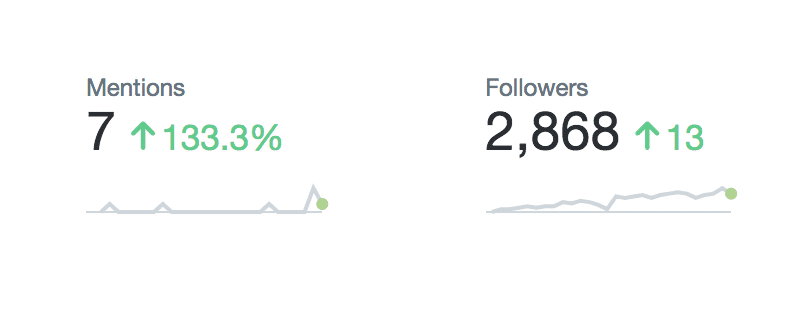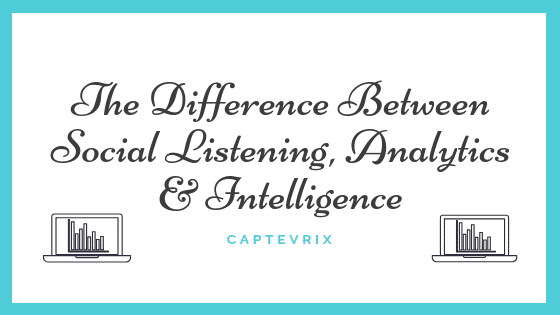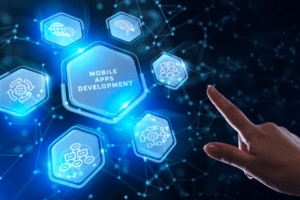Your brand doesn’t exist in a vacuum. Part of being on social media is that you’re existing and interacting in a community. You’re coming into contact with potential customers, fans, and competitors. In order to succeed, you need to know how to not only promote yourself to potential customers, but where you fit in the broader social media community. Not only that, but you’ll need to use the tools and cues from social media platforms to figure out if what you’re doing is right or if you need to make adjustments.
You may have read our article on the importance of social listening. And in your research into social media marketing, you may have also heard about social intelligence and analytics. What’s the difference? A good way to think of them is that they’re all layers of the same cake. They’re closely related but not the same. Each layer is gathered and applied slightly differently. And when you put them all together, they give you a well-rounded approach to social media.
Analytics
Social media analytics is just what it sounds like – it’s gathering raw data or information and then analyzing it. This is an important step in not only finding your place in the social media landscape, but also in finding out how your business is doing. Your dashboard for your analytics will probably look something as simple as this:


Or if you are looking straight from the social media platform itself, something like this:


As you can see, most platforms are pretty user friendly and easy to understand.
You can’t have the other two aspects without first gathering this information. Social analytics refers to more than just checking how many Tweets, comments, or likes you received. It’s about digging deeper to gain a better, more in-depth analysis of your brand.
Thankfully, most social media platforms make even more in-depth analysis fairly simple. Platforms such as Twitter, Facebook, and Instagram all have built-in applications that allow you to gather necessary data regarding your account and its success. Of course, you can also use companies or agencies to perform even more in-depth analysis for your social media presence.
To get the most out of your analytics, set goals in advance for what you want to capture and what you want to track. Pick some aspects of your social media interaction you want to focus on, such as comments, engagement rates, website visits from social media accounts, number of followers, etc. This will help you narrow down your search and make sure that you’re collecting all the data that you’ll need once you begin to dig into it using social media intelligence.
Intelligence
Intelligence has to do with how you apply the data you gathered in the first step. It provides context for the information you’ve gathered and gives you insight into what’s going on. It gives you the “why” to the data you collected. Social media intelligence is important to your overall success as a business. Not only does it help you put the data into a context, it helps you know how to use the data. Say you notice that in the past month, you’ve experienced a larger-than-normal increase in followers. Noticing the increase is using analytics.
But intelligence is finding out what caused that increase. Perhaps you posted an article that struck a chord with your audience. Perhaps you did a promotion on social media to increase followers. Maybe last month you partnered with a social media influencer. Whatever the reason, you want to find out so that you can replicate success or correct course in the future.
Social Listening
Social listening is like the icing on the cake – it’s not so much about your business as it is about the conversations that are happening on your platforms and learning what other people are talking about as it relates to your industry. Social listening tells you where you fit and helps you pinpoint your ideal audience. It also lets you know what’s going on in your communities.
This can give you an advantage so you can identify any niches that you can fill, help give you ideas for upcoming articles or promotions, and generally give you clues about what is needed in your industry. By finding and being involved in conversations that are important to your audience, you can establish yourself as an industry leader as well as building a good relationship with your audience.
Putting it all together
Successfully using social media for your business requires multiple approaches and using various tools. Some of those tools include how you interact with social media data.
When you effectively gather data using analytics, understand it using intelligence, and then apply the data using social listening, you will develop a solid social media strategy that will help your brand thrive. Utilizing these three aspects of social media marketing will also help you stay up-to-date and flexible in an ever-changing social media landscape.















